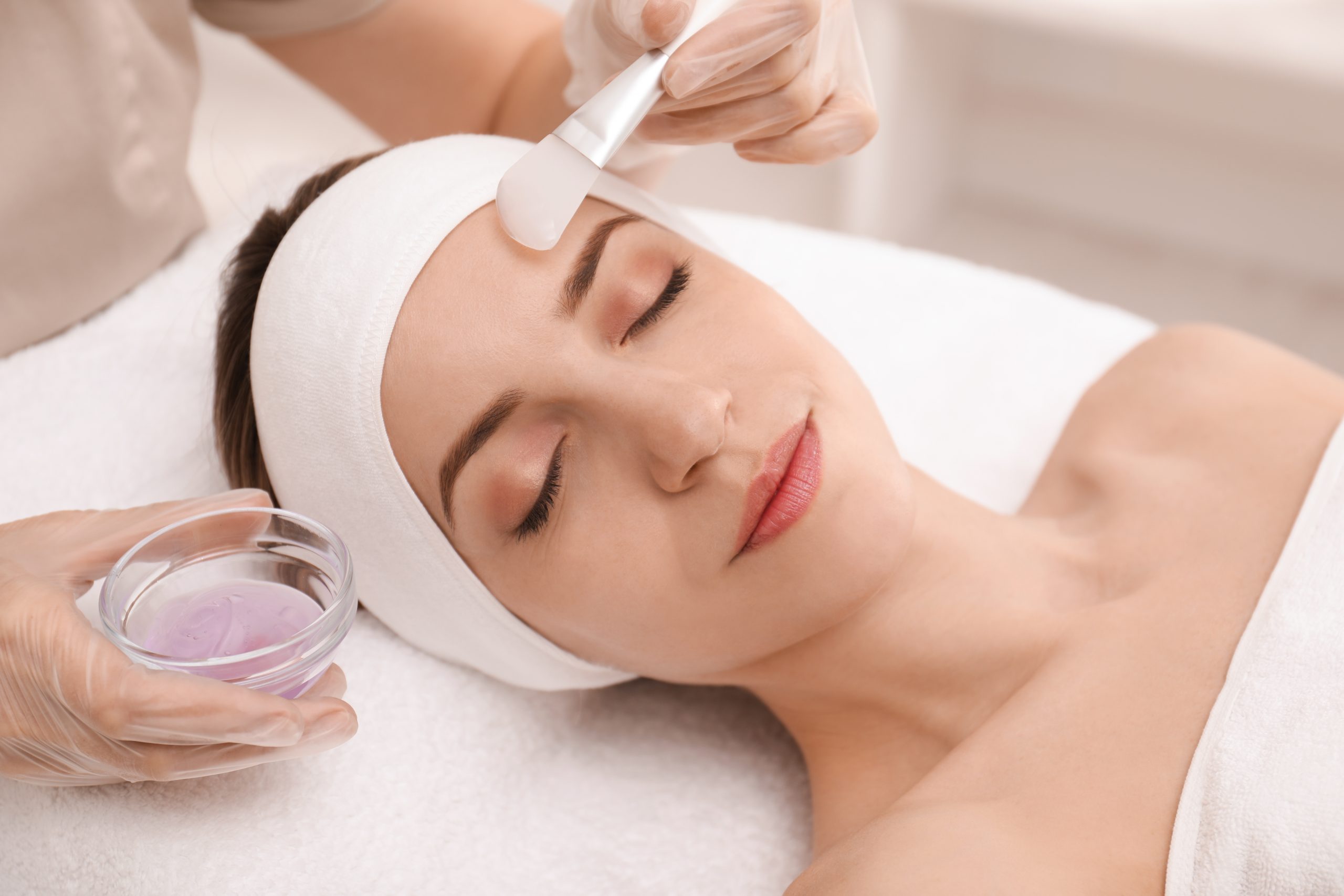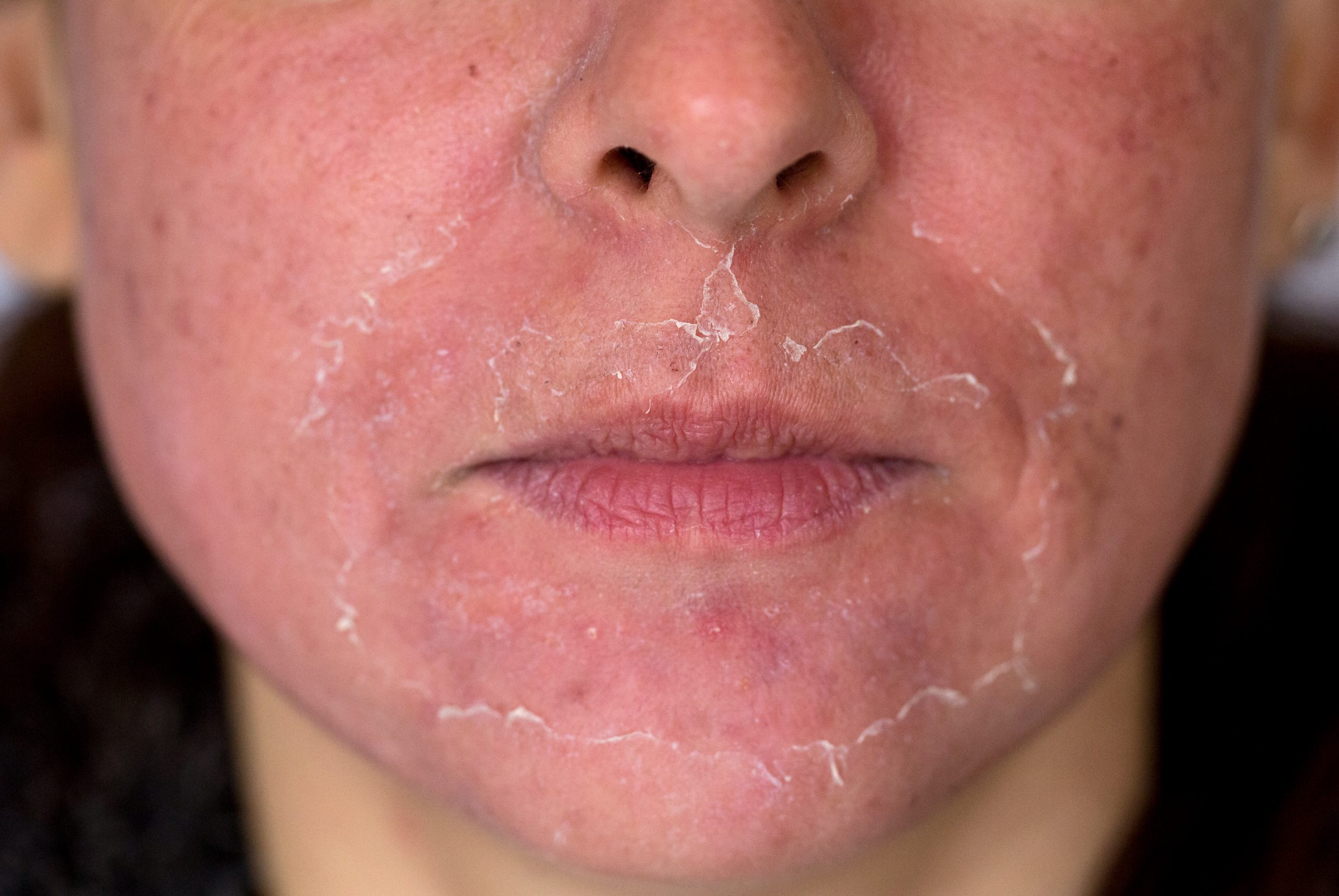Anyone who has had acne in the past is probably familiar with the scarring it can leave behind. Acne scars can make you feel self-conscious and embarrassed. Fortunately, many treatments are available to help improve the appearance of your skin. If you’re searching for the best treatment for your skin, then you might be wondering whether a chemical peel can help.
What Is A Chemical Peel?
A chemical peel is a type of cosmetic treatment used to improve the appearance of the skin. The treatment involves applying a solution of chemicals, such as mandelic acid, to the affected area of the skin. The chemicals then cause the damaged outer layer of skin to peel off and allow a new, healthier layer to emerge underneath.
Chemical peels are a popular method for treating various skin issues, such as reducing wrinkles or rejuvenating aging skin.
Types Of Chemical Peels
There are all kinds of different chemical peels that address various skin issues. These solutions also have additional chemicals to achieve specific goals. With that in mind, the following are the three main types of chemical peels and what they do:
Superficial Chemical Peels
Superficial chemical peels are the mildest type of peel. These chemical peels often contain alpha hydroxy acids, such as glycolic acid or lactic acid. The treatment removes the outer layer of dead skin cellsand is ideal for improving the texture and brightening the skin.
As a result, superficial chemical peels are used to help reduce fine lines and wrinkles, and improve uneven skin tone.
Medium Chemical Peels
Medium chemical peels are more aggressive than superficial peels and can produce visible results after just one treatment. These chemical peels often contain trichloroacetic acid along with mandelicacid. The treatment removes the epidermis as well as the outer layer of dead skin. Medium chemical peels are most commonly used for treating mild to severe post inflammatory hyperpigmentation and the beginning stages of fine lines and wrinkles. They can also help improve skin tone, texture, and discoloration.
Deep Chemical Peels
Deep chemical peels are the strongest kind of peel and can produce dramatic results. These peels often contain phenol or higher concentrations of trichloroacetic acid, which is an effective way to improve the appearance of deeper wrinkles and other signs of aging.
However, due to the strength of these peels, they should only be used by experienced professionals. This is because they can cause severe damage if not used correctly. The procedure usually causes temporary skin darkening, and the recovery time is 5-14 days depending on the type of peel done..
How Chemical Peels Work For Dented Acne Scars
There are several types of treatments that can help remove dented in scarring caused by acne. Although chemical peels aren’t one of them, it doesn’t mean chemical peels won’t help.
Many people who have had acne in the past also have some skin discoloration. This discoloration is often mistaken for scarring; however, it’s actually just post-inflammatory hyperpigmentation which is temporary discoloration that is treatable.
Post-inflammatory hyperpigmentation occurs when the skin is inflamed due to acne and produces too much melanin, which causes discoloration. If you have post-inflammatory hyperpigmentation as a result of acne, then chemical peels can help.
This is because a chemical peel can remove the damaged outer layer of your skin, which is the layer that contains the discoloration. In turn, this can help improve the appearance of your skin. Post-inflammatory hyperpigmentation can also be treated using intense pulsed light (IPL) treatment.
However, to treat dented in acne scarring, you’ll need to look at other treatments, such as laser resurfacing or microneedling, to name a few.
The Benefits Of Chemical Peels
Despite not being effective for more serious acne scarring, several benefits still make chemical peels worthwhile. The following are a few of the benefits of chemical peels:
- Gives skin a smoother tone and texture: Chemical peels help improve the tone and texture of your skin, giving it a more even look and feel. As a result, your skin will look healthier and brighter.
- Reduces dark spots: Chemical peels can help reduce the appearance of dark spots and blemishes, giving you a more even skin tone.
- Unclogs pores: Chemical peels can help unclog your pores, improving the appearance of acne-prone skin and reducing the risk of future breakouts.
Possible Risks Of Using Chemical Peels For Acne Scars
While adverse effects are not common, we believe it’s important to disclose that chemical peels aren’t without some potential risks and side effects. It’s why you should always consult a skincare professional before getting a chemical peel.
At Natural Skincare & Acne Clinic, all our treatments are performedby experienced and certified practitioners committed to providing safe and effective treatments.
We also offer a range of post-treatment products, such as soothing gels and creams, to help minimize any side effects and ensure your skin heals properly. These products can also be used to maintain the results of your treatment for longer.
With that in mind, the following are a few risks to be aware of when considering a chemical peel:
- Color change: Chemical peels can cause your skin to become lighter or darker than its normal color. If this happens, it’s usually temporary and should resolve after a few weeks. However, if the chemical peel was too strong or misapplied, the color change could be long-term.
- Allergic Reaction: If the chemical peel is too strong or applied incorrectly, it can cause temporary redness, raised bumps, and blotchy patches. This is more likely to occur if you have sensitive skin.
- Cold sores: Chemical peels can trigger an outbreak if you have a history of cold sores. This is because the peel weakens the skin barrier, making it more susceptible to infection.
What To Do Before Your Chemical Peel Treatment
At Natural Skincare & Acne Clinic, we will always take the time to explain the treatment and answer any questions you have. We’ll also discuss your medical history to ensure that a chemical peel is the right treatment for you and that it won’t have any adverse effects. Additionally, before your treatment, we also advise that you:
- Avoid direct sun exposure a few days before the treatment to reduce your risk of skin irritation.
- Stop using retinol or other topical medications a few days before your treatment.
- Don’t exfoliate right before your appointment. The chemical peel will exfoliate your skin, so you don’t want to do it twice.
- Drink plenty of water to ensure your skin is in the best condition possible ahead of your treatment.
- Avoid using makeup for at least a few days before your appointment.
Our Best Chemical Peels For Acne Scars
Here at Natural Skincare & Acne Clinic, we perform over 10,000 chemical peels per year to help people fight their acne. Additionally, we’ve achieved an extraordinary 95% success rate in helping people get rid of their acne in Denver over the past decade. The following are the two types of chemical peels that can help lighten acne-related scarring:
Jessner’s Peel
Jessner’s peel is a light to medium-strength chemical peel consisting of lactic acid, salicylic acid, and resorcinol (an anti-bacterial) that will penetrate the epidermis. Jessner’s peel is incredibly effective at preventing acne because it helps reduce bacteria, oil production, and inflammation in the skin.
We also use Jessner’s Peel to help minimize fine wrinkling and reduce pigmentation problems. We recommend adding the Retinol layer on top of the Jessner’s peel to boost the depigmentation benefits.
VI Peel
The VI peel is a medium-strength chemical peel that uses trichloroacetic acid (TCA) to boost collagen production and retinoic acid, which helps inhibit melanin production. Both of these ingredients make the VI peel especially effective against post-inflammatory hyperpigmentation.
Other ingredients in the VI peel include phenol, ascorbic acid, salicylic acid, and kojic acid, all of which help exfoliate the skin, even out skin tone, and prevent inflammation.
What To Expect After A Chemical Peel
A specialist in our clinic will administer the chemical peel to ensure safe and proper application. We typically recommend four to eight sessions based on the specific needs of the individual, with another treatment every subsequent two to three months. We will also provide detailed aftercare instructions to ensure your skin heals properly.
Immediately following the treatment, you may experience redness, dryness, flakiness, and peeling. Depending on the type of peel used, you may experience more or less of these symptoms. These effects should subside after a couple of days.
When it comes to lightening acne-related scars or post-inflammatory hyperpigmentation, we will provide hydroquinone or non-hydroquinone skin-lightening serums along with topical vitamin C to help speed up the healing process. We will also provide instructions on how to use these products and answer any questions you have.
Finally, we recommend that our patients take precautions for a few weeks following the treatment to reduce their risk of skin irritation. For example, you should stay hydrated, avoid over-exposure to the sun, use sunscreen if going outdoors, avoid over-exfoliating, and keep your skin moisturized.
Choose The Right Skincare Treatment For Your Acne Scars
There are several different types of treatment available when it comes to addressing acne scars. If you have light scarring or post-inflammatory hyperpigmentation as a result of acne, then a chemical peel can be very effective for evening your skin tone.
However, it’s essential to understand that chemical peels won’t help remove the actual scarring itself – for that, you’ll need to consider another treatment option.
Get your skin on track and eliminate your acne scars with our available services.


